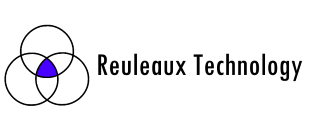Does IoT need assistants or coaching?
I recently read Carnegie Mellon University is working on a new high tech assistant called Gabriel. Apparently Gabriel will help you find restaurants and more quickly assemble IKEA furniture. Now Carnegie Mellon is renowned for its work in robotics, materials, and artificial intelligence (AI) and I have high expectations for their work. But my first thought when I read what to expect from this new program was: “Really? Do I really need more technology to help me find the best Kung Pao chicken or assemble a Scandinavian coffee table?” (By the way I approach IKEA assemblies like brain teasers and I feel I am a quitter if I have to get help.) If that is how Gabriel is going to work isn’t this “whisper in my ear” assistant just a more automated, audio version of search? I know, we live in an information world and more immediate access to the right information always has value. But I don’t see an “assistant” as the kind of disruptive use of artificial intelligence that we need.
I know that the Carnegie Team has much higher goals, but what kept my attention in this article is actually what I didn’t find – the word “coach.” I spend a lot of time these days working on the application of the IoT to healthcare and coaching is an everyday subject. In fact, I could argue that it is an overused word. I have been researching the science of coaching and how it can be used to help patients change their behavior and live healthier lives. When I read that Gabriel “whispers” in the user’s ear I thought about the NFL quarterback helmets and wondered “Does Mike McCarthy whisper in Aaron Rodger’s ear?”
Seriously, what defines a coach and how do we automate that skill? Google Now and Siri, by any definition, are assistants already so I would argue that if we don’t do more than present previously available information aren’t we just making a smarter search engine? Theo Priestly recently wrote a great piece on this very subject forecasting that the consumer focused companies like Google and Apple were going to win the race to AI in IoT because they understand this need much better than the academics and traditional industrial companies. But Priestly is still talking about big data analytics. Analyzing game films is only one part of coaching.
Good coaching is one of the most effective behavior change tools and behavior change is the most sought after function in both digital health and the Industrial IoT. Health systems don’t just want patients to do as they’re told, although that will help tremendously, they want them to improve their behavior and be healthier on their own. Companies don’t just want workers to follow rote instructions, they want them to become better problem solvers and make the company smarter. The problem is good coaching does not have a recipe, an algorithm if you will. When you search for a definition of coaching with Google you don’t even find one clear definition. Good coaching is like innovation – you recognize it when you see it but you’re not sure how to reproduce it.
Coaches don’t just help players call the right play and avoid errors; they help them get better at whatever it is they want to do. Coaches ask questions and help the subject improve to the point where they perform at their desired level on their own. Coaches can improve the performance of those who already outperform them. Think about how hard it must be to coach a player of Aaron Rodger’s skill level. I want to say that coaching is a uniquely human activity, but I am not sure that mothers in the animal kingdom don’t coach their offspring. But I am sure that any automated coaching solution is going to need intelligence, artificial intelligence. So the Carnegie team is on the right track with their technical approach, but the daunting question is “Can one be a good coach without emotional cognizance?” Based on what I see on the sidelines during the NCAA Final Four I would say “No.”
Most of the patient engagement apps that I have seen thus far avoid this whole subject by keeping “a human in the loop.” Human-in-the-loop doesn’t scale so at this point I would say this is recognition of how hard it is to automate coaching AND how important coaching is to behavior change. An assistant can help me know what to do, but a coach will make sure I actually do it and do it right.
We are seeing all kinds of new wearables at CES again this year. Most if not all of them intend to help us live our lives better through the use of the data they generate and the activities they monitor. I hope the Carnegie Mellon team moves quickly past the assistant stage and finds the Vince Lombardi algorithm.
PS: I knowingly created a pun with the predicate noun in the title :')
